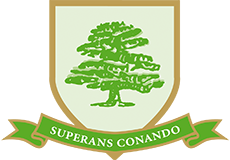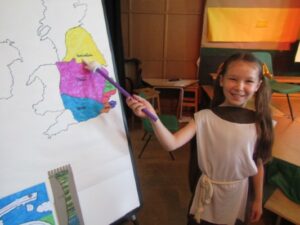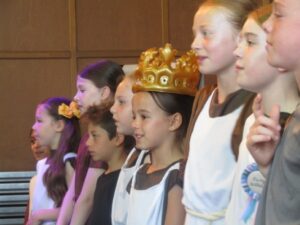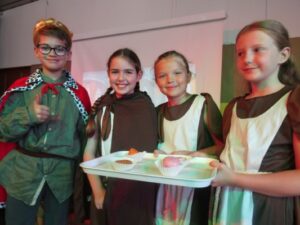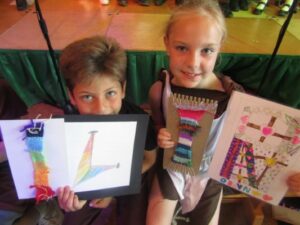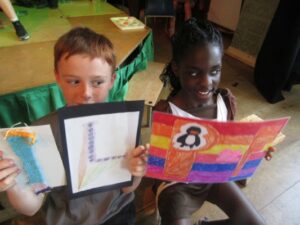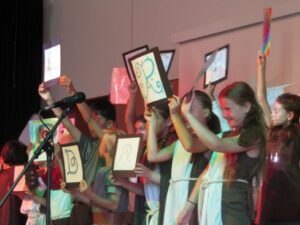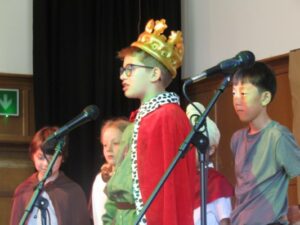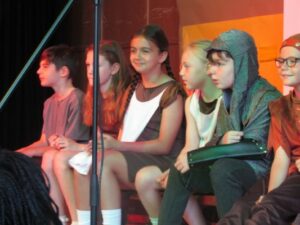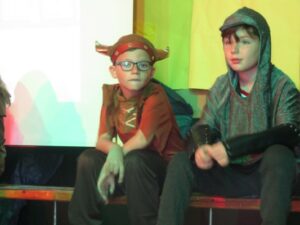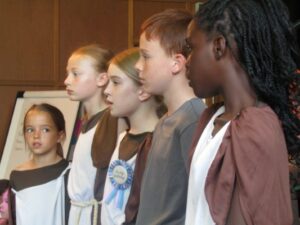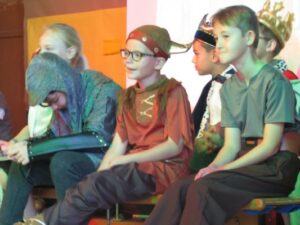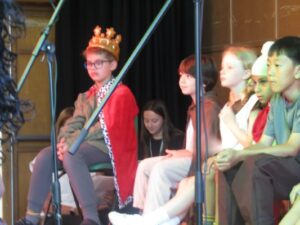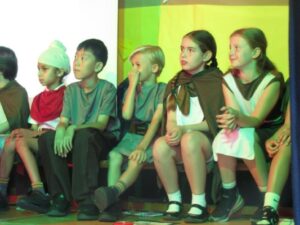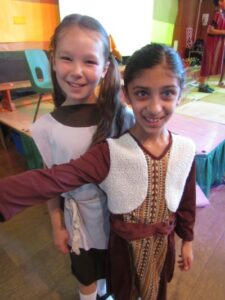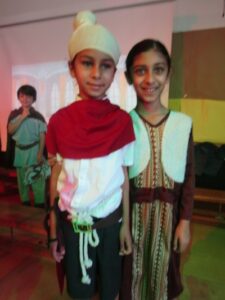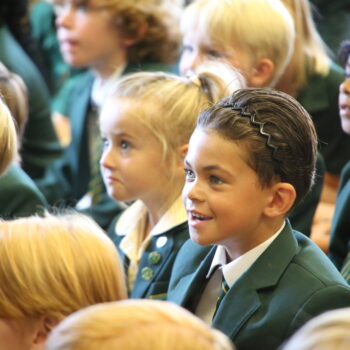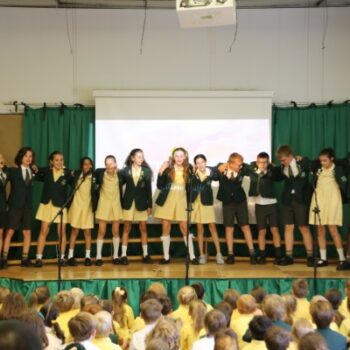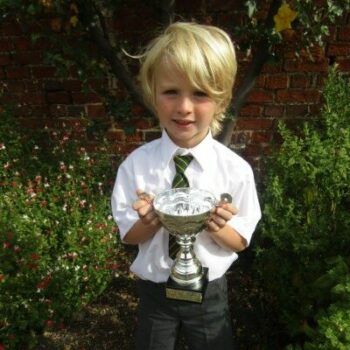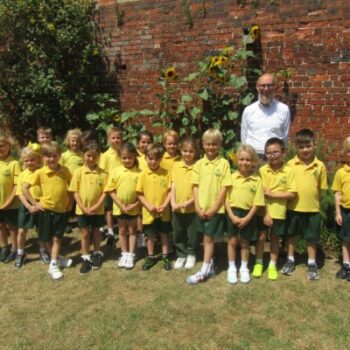Year 4 welcomed families and fellow pupils to their class assembly, which focused on their learning about the Anglo-Saxons this term.
Dressed in character, the children began by explaining that the Romans had left Britain to defend their emperor, much to the delight of the Angles. But who were the Angles? We learned that they were part of a group of tribes from across the North Sea—including the southern Danes, the Jutes from northern Denmark, and the German-Dutch Saxons. Though once invaders, they eventually settled and became known as the Anglo-Saxons, naming the land “Angle Land.”
Scarlett impressed the audience with a map showing how, in the 7th century, several warring tribes united into seven kingdoms: Mercia, Kent, East Anglia, Northumbria, Sussex, Wessex, and Essex. Each had its own king, or Cyning. These warrior kings ruled for over 600 years—and there were many of them!
We explored Anglo-Saxon life through famous discoveries like the Sutton Hoo burial ship and the Staffordshire Hoard. Men were not only warriors but could also be farmers, hunters, and metalworkers, to name a few. Women held important roles, managing households and enjoying rights over marriage, property, and land ownership.
The Anglo-Saxons also loved feasting and storytelling. We were captivated by a retelling of Beowulf, accompanied by period-style music. At first, the Anglo-Saxons followed pagan beliefs, even naming most days of the week after their gods—except Saturday, which came from the Roman god Saturn.
Education was valued, especially in monasteries where monks taught reading and writing. The children took this moment to show the audience the artwork they had produced of Anglo-Saxon letters and also a sample of their weaving that they had created.
We learned that King Alfred introduced Danelaw, ensuring that the people became literate and that he was also one of only two kings titled “the Great.” However, Alfred is famously remembered for burning cakes—an incident Year 4 humorously reenacted! This scene ended with Alfred cheerfully saying, “Oh well, you can only do your best, and history will do the rest.”
The Anglo-Saxon period spanned from 410 to 1066, with many kings ruling during this time. The children highlighted these rulers by singing a song and passing a crown from one to another.
It was an informative and entertaining assembly. Mr Wilson was particularly delighted with many and varied facts that were included in the assembly. He was impressed by the pupils’ clear voices, confident performances, and strong singing. Mrs Barr and Miss Weigler were proud of how well the children shared their knowledge with the whole school.

